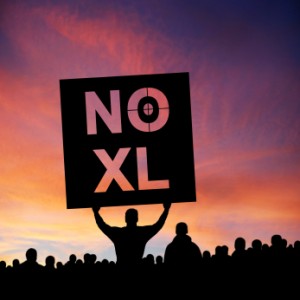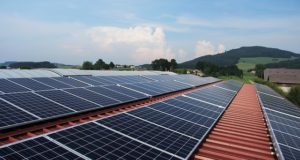 The proposed 1,700-mile long Keystone pipeline would transport crude oil from Canada’s oil sands region in Alberta to refineries along the U.S. Gulf Coast. TransCanda (TRP), the company that would build the pipeline, predicts Keystone would create 20,000 direct jobs and upwards of 120,000 indirect jobs. So, with 13,000 construction jobs, 7,000 direct support jobs, and at least 100,000 indirect jobs such as restaurant workers and hotel employees, why is the Obama administration delaying? While America’s need for jobs and energy independence from OPEC is obvious, the situation may not be as black and white as it seems.
The proposed 1,700-mile long Keystone pipeline would transport crude oil from Canada’s oil sands region in Alberta to refineries along the U.S. Gulf Coast. TransCanda (TRP), the company that would build the pipeline, predicts Keystone would create 20,000 direct jobs and upwards of 120,000 indirect jobs. So, with 13,000 construction jobs, 7,000 direct support jobs, and at least 100,000 indirect jobs such as restaurant workers and hotel employees, why is the Obama administration delaying? While America’s need for jobs and energy independence from OPEC is obvious, the situation may not be as black and white as it seems.
The Supporters
Pressure from across the political spectrum is mounting to convince the President to place the needs of thousands of Americans seeking jobs ahead of political concerns. Supporters of the pipeline are an unlikely alliance of everything from Union leaders to conservative Republicans.
The AFL-CIO’s Mark Ayers, president of the AFL-CIO’s building and construction trades department, told the Huffington Post that “it is America’s workers who are clamoring for the expedited approval of this important project.” The International Brotherhood of Electrical Workers said in its endorsement: “At a time when jobs are the top global priority, the Keystone project will put thousands back to work and have ripple benefits throughout the North American economy. Our members look forward to being part of this historic project and pledge to deliver the highest quality work to make it a success.”
Support for the project is bipartisan in both the Senate and House, and the President would surely be cheered on Capitol Hill allowing the project to go forward. So what is the hold up?
The Opponents
Opponents to the pipeline claim TransCanda’s employment predictions are inaccurate. They say TransCanada counts each job on a yearly basis. If the pipeline employs 10,000 people working for two years, that’s 20,000 jobs by the company’s count. Since estimates include one third of the jobs being in Canada, the U.S. State Department forecasts only 5,000 direct U.S. jobs over a two-year construction period.
Susan Casey-Lefkowitz , director of international programs at the Natural Resources Defense Council said, “Those [5,000 jobs] are the real numbers. The Republicans have been acting as if this is a national jobs package, and it’s not.”
A Cornell University study reports that the pipeline may actually lead to a decline in jobs over the long run. Reasons given in the study include possible higher fuel prices in the Midwest that would slow consumer spending and ultimately cost jobs. The study also predicted the possibility of lost jobs due to crop failures associated with higher pollution levels that oil sands would bring. The Cornell study also pointed to a possible decline in green jobs.
The Real Problem
Some arguments against the pipeline are obvious smoke screen. The expanded pipeline will carry 700,000 barrels of oil a day to U.S. refiners (about 4 percent of the country’s daily consumption of 19 million barrels a day). Critics respond that those are still imports, while ignoring oil from Canada is much better for national security than from unfriendly regions like the Middle East and Venezuela. TransCanada says it only has contracts with U.S. refiners, not export terminals.
The real issue for opponents is what the pipeline will pump – oil. Environmentalists grudgingly admit the main reason they are against the pipeline is the oil itself. Oil from the oil sands is dirtier than conventional forms of crude. The oil sands are just that — oil mixed with sand. To get a usable form of crude, massive amounts of water and energy are used to separate the sand from the oil. The claim is that impact on the greenhouse footprint will be greater than with normally drilled oil. This puts President Obama under pressure from those special interest groups.
With unemployment at 8.7 percent and as many as 14 million Americans either drawing unemployment benefits or looking for work or having exhausted their benefits and given up applying for new jobs, Keystone is an appealing choice. The pipeline has been under study for over three years and met approval from a wide range of industry and outside groups. However, in the fight between jobs and the environment, which one will win? Can we even say which one should win?
©2012 Off the Grid News
 Off The Grid News Better Ideas For Off The Grid Living
Off The Grid News Better Ideas For Off The Grid Living



